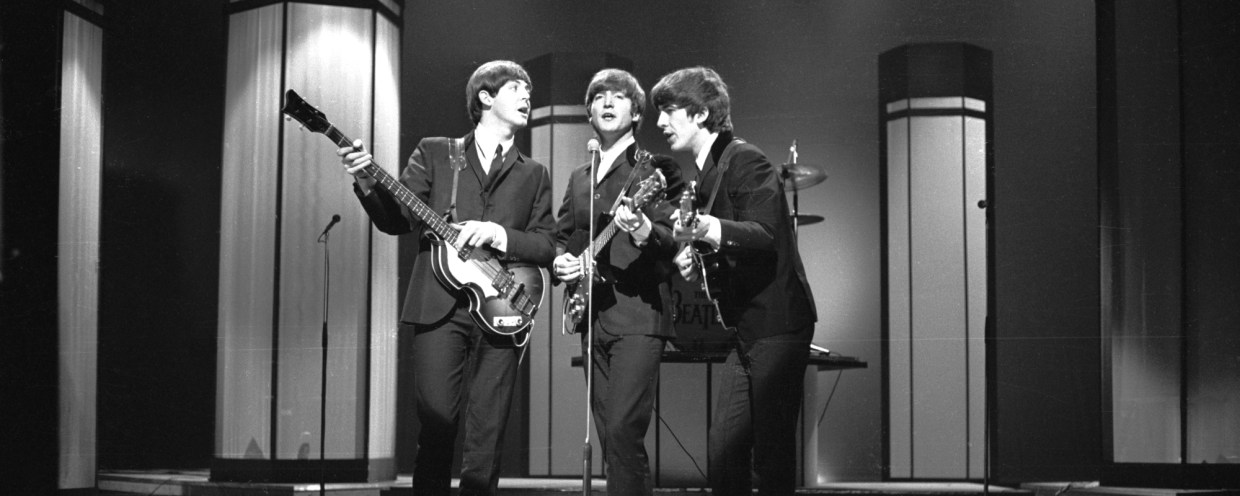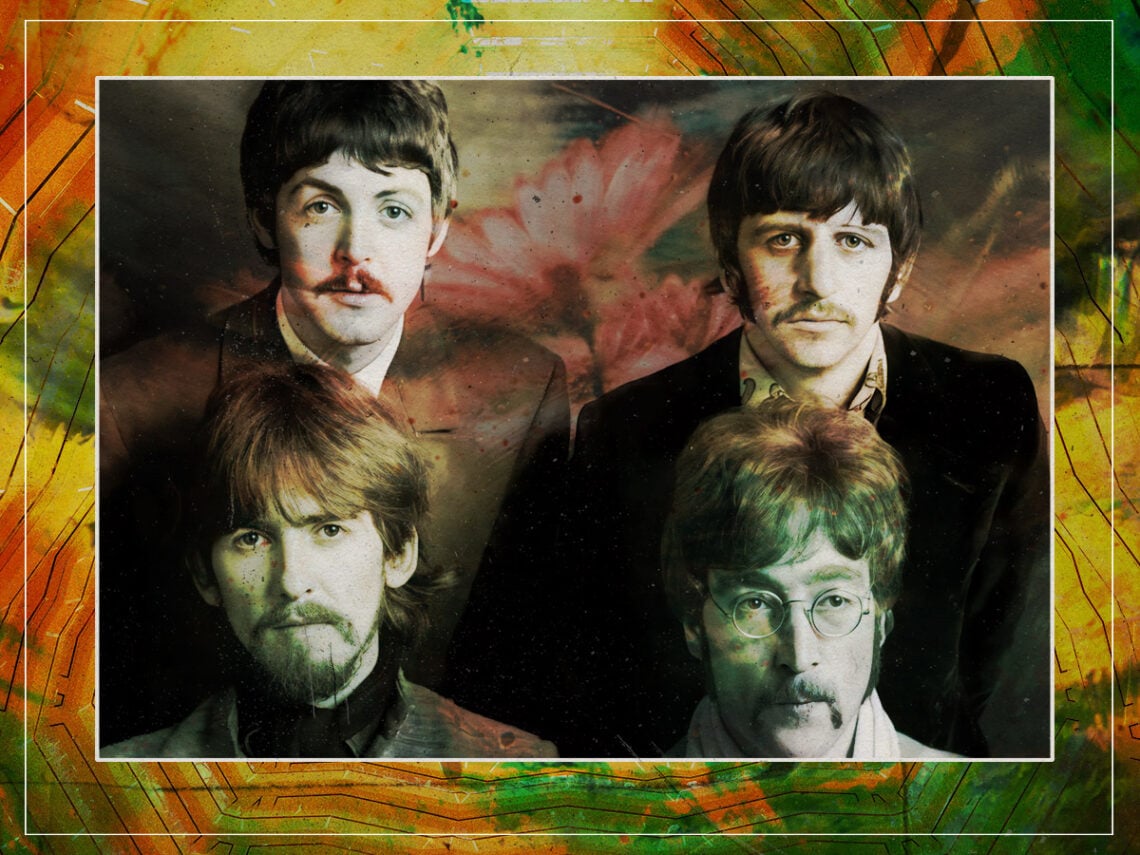Take a song from a classic Walt Disney movie, mix in a marriage being kept from public knowledge, a posh Liverpool flat, and a doo-wop record, and you get a hit song by Billy J. Kramer & The Dakotas. Credited to John Lennon and Paul McCartney, this was the first of many of their hits sung by a different artist. (George Harrison would sing the lead on The Beatles’ version.) Let’s look at the meaning behind “Do You Want to Know a Secret” by The Beatles.
The First Dramatic Minor Chord
The song starts with a slow introduction that doesn’t repeat later in the song. Lennon had picked up this staple from many of his favorite songs from the ’30s and ’40s.
You’ll never know how much I really love you
You’ll never know how much I really care
A Walt Disney Classic
Lennon’s mother Julia would often sing “I’m Wishing” from the 1937 animated film Snow White. Larry Morey and Frank Churchill wrote the song. The opening lines are: Want to know a secret? / Promise not to tell? / We are standing by a wishing well.
In All We Are Saying: The Last Major Interview with John Lennon and Yoko Ono, Lennon told David Sheff, “My mother was always … a comedienne and a singer. Not professional, but, you know, she used to get up in pubs and things like that. She had a good voice. She could do Kay Starr. She used to do this little tune when I was just a 1- or 2-year-old. … Yeah, she was still living with me then. … The tune was from the Disney movie.”
Listen
Do you want to know a secret
Do you promise not to tell
Whoa, oh, oh
A Marriage Kept from Public Knowledge
As their manager, Brian Epstein was pursuing a recording contract for The Beatles, and Lennon was planning on marrying Cynthia Powell. Epstein urged Lennon to rethink his plans, as he had been selling the group as a quartet of young, lovable, single gentlemen. Lennon agreed to postpone the wedding, and The Beatles signed with EMI’s Parlophone label on February 13, 1962. Lennon and Powell were married on August 23, 1962, at the Mount Pleasant register office in Liverpool. Epstein was the best man.
Closer
Let me whisper in your ear
Say the words you long to hear
Ooh-ooh-ooh-ooh ooh
A Posh Liverpool Flat
Epstein still urged Lennon to keep the marriage quiet and offered the use of his 36 Falkner Street apartment for two weeks if the newlyweds would keep the news to themselves. The couple could not afford a honeymoon, so they spent the two weeks locked away in the manager’s flat. Lennon told author Sheff, “I was in the first apartment I’d ever had that wasn’t shared with 14 other students–gals and guys at art school. I’d just married Cyn, and Brian Epstein gave us his secret little apartment that he kept in Liverpool for his sexual liaisons separate from his home life. And he let Cyn and I have that apartment.”
I’ve known a secret for a week or two
Nobody knows, just we two
A Doo-Wop Record
It was in that apartment where Lennon wrote the song. He would later say the “secret” wasn’t so much the actual marriage as it was the fact that he was actually in love. Lennon told Sheff, “So, I had this sort of thing in my head, and I wrote it and just gave it to George [Harrison] to sing. I thought it would be a good vehicle for him because it only had three notes, and he wasn’t the best singer in the world. He has improved a lot since then, but in those days, his singing ability was very poor because (a) he hadn’t had the opportunity, and (b) he concentrated more on the guitar. So I wrote that—not for him as I was writing it, but when I had written it, I thought he could do it.”
The Beatles recorded “Do You Want to Know a Secret” on February 11, 1963. They incorporated elements of the 1961 doo-wop classic “I Really Love You” by The Stereos. Harrison would later include his own version of the Stereos’ hit on his Gone Troppo album in 1982.
Listen
Do you want to know a secret
Do you promise not to tell
Whoa, oh, oh
A Doo-Wop Record
It was in that apartment where Lennon wrote the song. He would later say the “secret” wasn’t so much the actual marriage as it was the fact that he was actually in love. Lennon told Sheff, “So, I had this sort of thing in my head, and I wrote it and just gave it to George [Harrison] to sing. I thought it would be a good vehicle for him because it only had three notes, and he wasn’t the best singer in the world. He has improved a lot since then, but in those days, his singing ability was very poor because (a) he hadn’t had the opportunity, and (b) he concentrated more on the guitar. So I wrote that—not for him as I was writing it, but when I had written it, I thought he could do it.”
The Beatles recorded “Do You Want to Know a Secret” on February 11, 1963. They incorporated elements of the 1961 doo-wop classic “I Really Love You” by The Stereos. Harrison would later include his own version of the Stereos’ hit on his Gone Troppo album in 1982.
Listen
Do you want to know a secret
Do you promise not to tell
Whoa, oh, oh
Billy J. Kramer & The Dakotas
Epstein managed several other Liverpool acts, and they were always looking for new material. “Do You Want to Know a Secret” was the debut single released by Kramer. It soared to No. 2 on the UK charts. The flip side was also a Lennon/McCartney song. In fact, four of his first five singles were written by the Beatle duo, and they all reached the top 10. “Bad to Me,” “I’ll Keep You Satisfied,” and “From a Window” were the others. The first album by The Beatles, Please Please Me, included their version with Harrison singing. The song was not released as a single in the UK, but Vee-Jay Records put it out in the U.S. It reached No. 2 on the Billboard Hot 100 in 1964. It was blocked from the top spot by “Can’t Buy Me Love,” also by The Beatles. For a while after it was written, the group did not perform it onstage. They simply set it aside until they recorded it. Harrison said in The Beatles Anthology, “I didn’t like my vocal on it. I didn’t know how to sing; nobody told me how to.”
Let me whisper in your ear
Say the words you long to hear
I’m in love with you
Ooh-ooh-ooh ooh-ooh
Ooh-ooh-ooh ooh-ooh
Ooh-ooh-ooh ooh-ooh
The Beatles would perform the song six times on various BBC Radio programs. It was also included on the 2013 album On Air – Live At The BBC, Volume 2.



